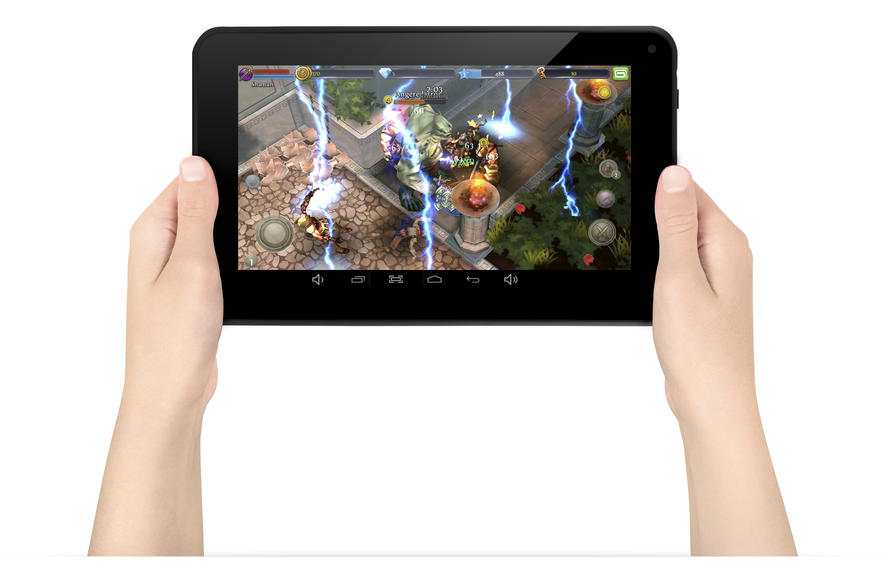Mobile gaming is blowing up, and the proof is in the numbers. As of right now, women have rocketed past young guys as the largest video game playing demographic in the U.S., with 80% of moms (if you can believe it) playing mobile games at least once a week. This evolution of what it means to be a gamer is one reason that the mobile segment of today’s 90 billion dollars gaming industry is going to overtake the console market this year. A lot of people are playing video games these days and there are plenty of them out there to play.
So now let’s talk about some different numbers – specifically the number of processors in a gaming device. A big part of mobile’s dominance in the gaming world has to do with the technology available now. Once upon a time, being a serious gamer meant having a lot of different devices. A PC, a console or three and some handheld systems, too. Now the only device you need to play everything from the simplest word puzzles to the most complex RPGs is probably already in your pocket.
Probably – not definitely – because when it comes to what a phone or tablet can do, the specs are still all over the map. Price, screen size, coverage area, and audio options are easy enough for the not-so-serious gamer to understand, but processors are another story. What are dual core and quad core processors? And why do they have such a big impact on device performance, anyway?
First, let’s take a look at what processors actually are. The first single core processors (also known as the central processing unit or CPU) on the market for desktop and mobile devices were pretty good at doing one task at a time. Multi core processors were the next stage of desktop evolution – having multiple processors meant a device was much better at handling multiple tasks simultaneously. More cores also let users complete larger, more complex tasks with greater efficiency. Fast forward to 2012 when the first dual core processors for tablets and smartphones hit the scene and then to today, when companies like Snapdragon are helping make quad core the standard.
The natural next question is whether you need a quad core processor or whether two cores will suffice. Processing power isn’t necessarily a clear deal maker or breaker. A dual core will offer plenty of power to casual device users who tend to do one thing at a time – browsing OR looking at photos OR listening to music.
More serious gamers, however, benefit from everything multi core processors offer because they don’t have to worry about games competing with background functions and downloads for resources. That ‘s why graphics-heavy video games and resource intensive apps that deliver graphics, speed and sound simultaneously look better and work better with more processing power behind them. An automatic Instagram update or an incoming text message – just to offer two examples – isn’t going affect performance.
If you’re in the market for a new device, don’t get swept away by the more technical stats. Instead, consider how you use your tablet or phone. Devices at nearly every price point now feature quad core processors but that doesn’t mean you need one. Don’t forget that a device’s graphics processing unit (GPU), Flash processors, image processors and operating system will all contribute to how well it performs under pressure.
That said, a phone or tablet with a quad core processor will load apps and photos faster, have sharper graphics and streaming speeds, and support today’s more graphics-intensive games. It’s also a good bet for the future as more and more apps are being developed with the assumption that the user will be on a quad core device. As development goes, so do device trends – getting on board the quad car now might just be a smart idea.
 Via http://ematic.us/tablets/7-hd-quad-core-android-42-egq307
Via http://ematic.us/tablets/7-hd-quad-core-android-42-egq307
About the Author
Jessica Oaks is a freelance journalist who loves to cover technology news and the way that technology can make life easier. She is also an editor at www.freshlytechy.com. Follow her on Twitter @TechyJessy.



